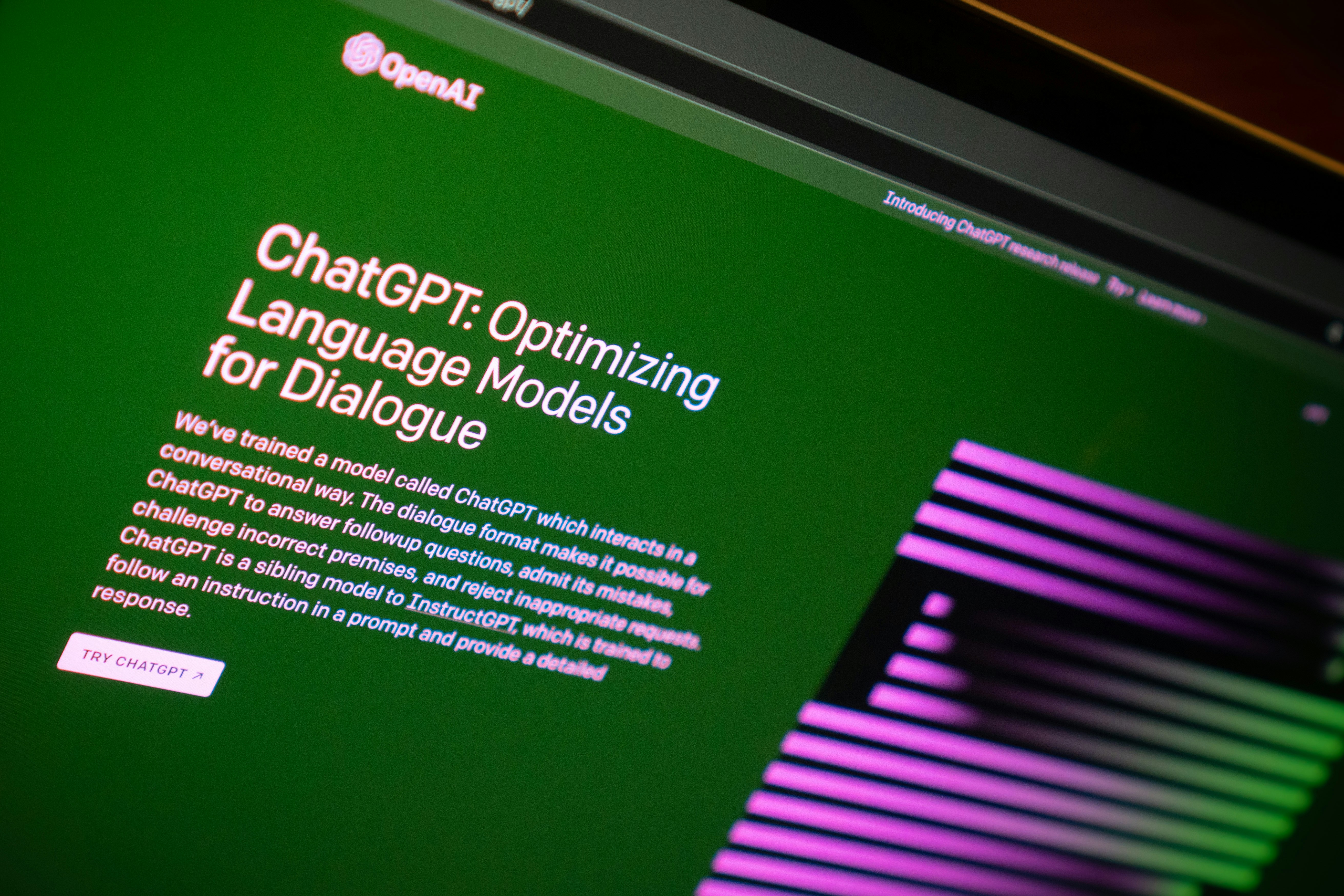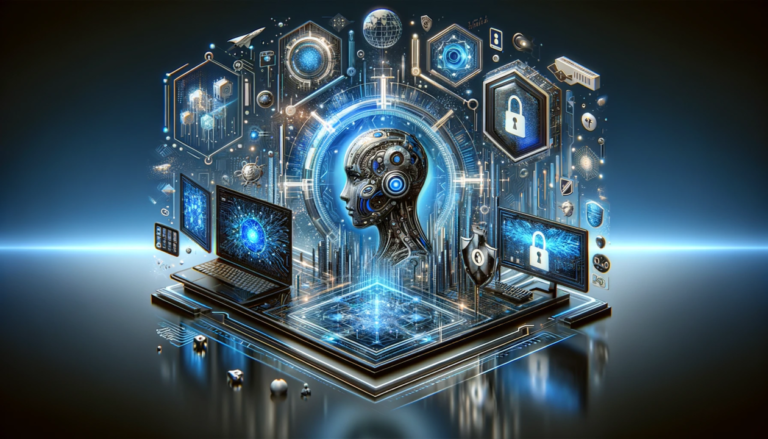Introduction to the Evolution of ChatGPT
The evolution of ChatGPT has been a remarkable journey, reflecting significant advancements in artificial intelligence and natural language processing (NLP) technologies. Launched initially as a project aimed at enabling users to interact with machines in a human-like manner, ChatGPT has undergone transformations that have progressively enhanced its capabilities. The foundation of this conversational AI tool rests on the innovation of deep learning algorithms and large language models, allowing for more nuanced and context-aware responses.
As the demand for seamless human-computer interaction continues to grow, so too has the application of conversational AI across various sectors. Industries ranging from customer service to healthcare and education have recognized the advantages of incorporating sophisticated AI systems like ChatGPT. These solutions enhance user experience, streamline processes, and provide instant support, showcasing the critical nature of conversational AI in contemporary society. Furthermore, ongoing research and investment into ethical AI practices have shaped the evolution of ChatGPT, ensuring that as the technology advances, it aligns with societal values and user needs.
As we approach 2025, it is clear that the trajectory of ChatGPT is not only about technological supremacy but also about redefining how we engage with machines in meaningful ways. The advancements leading to this point have established a framework upon which future developments will be built, ensuring that ChatGPT continues to evolve alongside the changing landscape of human communication.
Advanced Features and Capabilities in 2025
As we look towards 2025, ChatGPT is anticipated to exhibit advanced features and capabilities that significantly enhance its functionality as a leading conversational AI. One of the notable advancements will be in contextual understanding, enabling the model to maintain coherence across extended interactions. This entails an improved ability to grasp the subtleties of context, allowing for more relevant and nuanced responses. Users can expect that ChatGPT will not only recall recent facts from a conversation but will also comprehend the broader context of previous interactions, enhancing user experience.
Another vital feature that will elevate ChatGPT’s performance is its multitasking ability. In 2025, it is expected that users will be able to engage in complex dialogues where multiple topics are discussed simultaneously. This enhancement will allow for a more dynamic conversation flow, making it easier for users to jump between multiple subjects without losing track of the overall discussion. Such versatility will be particularly beneficial in professional settings, where collaborative engagements may require addressing several points concurrently.
Personalization options will also be a significant focus in the evolution of ChatGPT. By allowing users to customize their interactions, the AI will provide tailored responses that align with individual preferences and communication styles. As a result, users will experience a more engaging and relatable interaction, making the technology feel less like a machine and more like a human counterpart.
Moreover, the integration of voice recognition and emotional intelligence will play a crucial role in creating a more human-like conversational experience. By interpreting vocal tones and emotional cues, ChatGPT will be capable of responding appropriately to the user’s emotional state, further bridging the gap between human interaction and artificial intelligence.
Impact on Industries and Everyday Life
The advent of ChatGPT and its potential evolution by 2025 promise substantial changes across multiple industries, fundamentally transforming how businesses operate and how individuals interact with technology. In the realm of education, for instance, ChatGPT is poised to facilitate personalized learning experiences, adapting to the unique needs of each student. Its ability to provide instant feedback and resources will empower educators to concentrate on more complex teaching tasks, thereby promoting a more efficient educational framework.
Healthcare is another sector where the influence of ChatGPT will be profound. By assisting in diagnostic processes, managing patient inquiries, and providing vital information, this technology can enhance the efficiency of healthcare delivery systems. Moreover, virtual consultations powered by conversational AI will likely become commonplace, making healthcare more accessible to a broader population. This shift can lead to improved patient outcomes and increased overall satisfaction in healthcare services.
In customer service, businesses are leveraging the capabilities of ChatGPT to enhance engagement and streamline operations. By implementing AI-driven chatbots, companies can provide 24/7 support, addressing customer inquiries in real-time and freeing human representatives to handle more complex issues. This not only boosts efficiency but also leads to a more satisfying customer experience, as users receive prompt and relevant assistance without prolonged waiting times.
Content creation stands to gain significantly from ChatGPT as well. Writers and marketers can utilize the AI’s capabilities to generate ideas, streamline writing processes, and produce high-quality content more efficiently. This integration allows for increased creativity and innovation, as AI assists rather than replaces human input.
On a personal level, ChatGPT is expected to redefine how individuals interact with technology in their daily lives. By integrating conversational AI into everyday devices and applications, users may find tasks more manageable, from scheduling appointments to obtaining information. The enhancement of productivity and accessibility will not only simplify routines but also empower users to engage with technology in innovative ways.
Ethical Considerations and Future Challenges
As the capabilities of conversational AI, particularly models like ChatGPT, continue to evolve towards 2025, ethical considerations and future challenges will become increasingly prominent. One significant aspect revolves around data privacy. With conversational AI systems requiring vast amounts of data to train and improve their performance, the mechanisms by which user data is collected, stored, and utilized will need careful scrutiny. Users must possess an understanding of how their personal information might be leveraged by AI systems, emphasizing the importance of transparency from developers. Ensuring robust data protection measures will be crucial in building user trust and promoting responsible AI utilization.
Another pressing issue is the proliferation of misinformation. As AI-generated content becomes more sophisticated, the potential for producing misleading or false information increases significantly. ChatGPT’s ability to create coherent and contextually relevant text poses unique challenges in distinguishing between accurate information and deliberately falsified content. Stakeholders will need to address these challenges by implementing preventive measures such as content validation protocols and promoting digital literacy among the general public. Awareness campaigns will play a vital role in helping users discern reliable information sources from AI-generated ones.
The responsibility of developers and organizations deploying such technologies cannot be overstated. As AI models become more integrated into everyday interactions, developers must ensure safety and fairness in their applications. This responsibility includes prioritizing the prevention of biased responses generated by these models, which may inadvertently perpetuate harmful stereotypes. Furthermore, as regulatory frameworks evolve, the conversation surrounding accountability will necessitate engagement from developers, policymakers, and community leaders alike. Establishing ethical guidelines for AI deployment will be essential in navigating future challenges while ensuring the effective and fair use of conversational AI.








